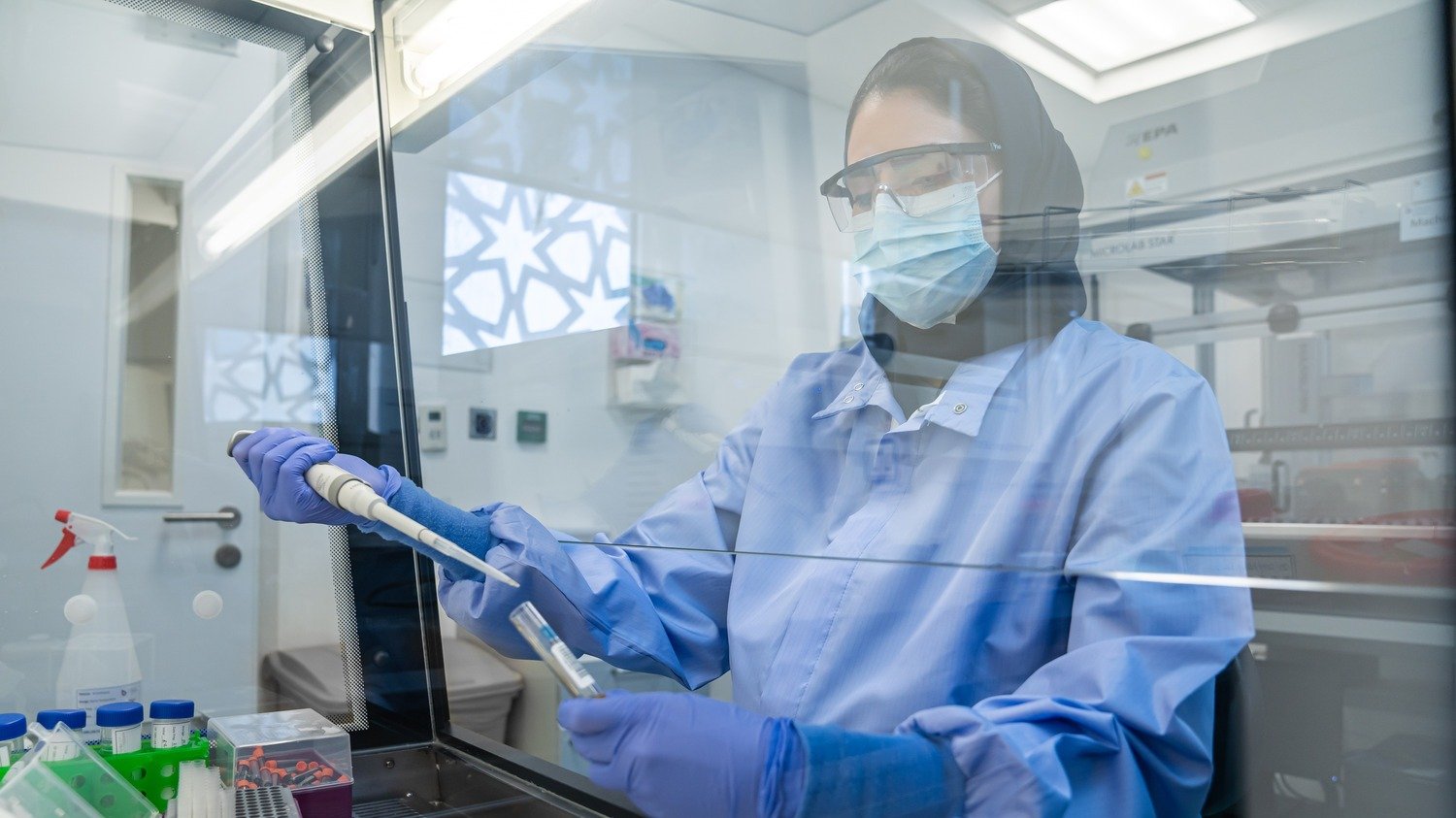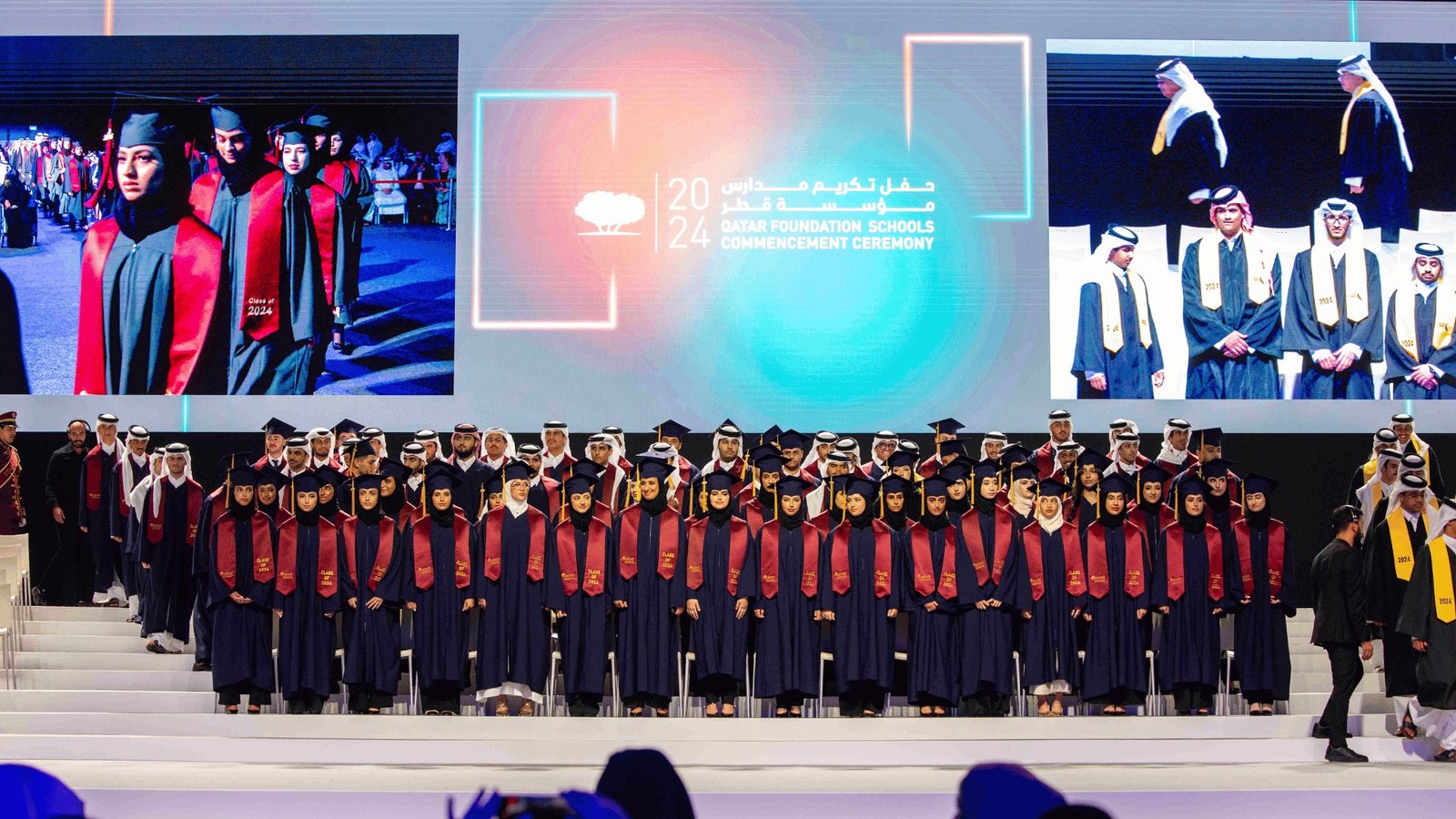Launch of Al Jazeera 360 platform
Al Jazeera Media Network will launch its new digital platform “Al Jazeera 360...
Sep 14, 2024
Qatar Precision Health Institute continues to play a leading role in improving Arab representation in global genome databases
Joanna Hindo, Oct 29, 2024

A recent study has shown that only about 0.17 percent of people in published genomic studies are of Arab ancestry, with 88 percent being of European ancestry. This hinders the progress of precision medicine worldwide, as people of European origin represent a minority among the global population.
Yet, at the same time, they constitute the largest percentage of human genome research, which directly affects understanding of prevalent diseases, the methodology for developing treatments, the pharmaceutical industry, and innovative ways to prevent diseases.
This topic will be among the healthcare issues that come into focus when the World Innovation Summit for Health (WISH), Qatar Foundation’s (QF) global health initiative, hosts host its seventh edition in Doha on 13 and 14 November 2024. The theme of this year’s summit is ‘Humanizing Health: Conflict, Equity and Resilience’, and two of its four tracks are the health of vulnerable and minority populations and system-level innovation and change.
Precision medicine is one of the main fields that will contribute to system-level innovation and change, in addition to the role it plays in highlighting the health of minorities who are not included in research, especially genomic studies.
And speaking about the dominant representation of Western genomes, Dr. Radja Badji, Translational Genomics Manager at QF’s Qatar Precision Health Institute (QPHI), said: “Historically, genomic research and major biobanks were established in Western countries where there was substantial early investment in genetic research infrastructure. This led to easier access to research funding and a more established framework for collecting and utilizing genomic data.”
However, the tide is changing. In the past decade, several Arab countries including Qatar, Saudi Arabia, UAE, Egypt, and Jordan have set up national genome programs. Qatar, in particular, has been at the forefront in ensuring Arab genomes are better represented in global genomic databases.
Commenting on QPHI’s ongoing efforts in bridging the diversity gap in genomics, Dr. Badji said: “QPHI, through its Qatar Biobank and Qatar Genome Program, is strategically positioned to address these imbalances by focusing on recruiting a diverse participant base within Qatar. QPHI also emphasizes the integration of genomic research into national health strategies, which encourages diverse population participation”.
He added that Qatar Biobank and the Qatar Genome Programme have significantly enhanced the inclusivity of genomic databases, by sequencing and sharing over 14,600 whole genomes from the Qatari population and more than 2,900 genomes from 19 other Arab countries with the research community.
A recent study highlighted that as of 2022, Qatar contributed 96.2 percent of the Arab representation in GWAS datasets, with the remaining 3.8 percent coming from 10 other countries, emphasizing the significant impact of Qatar's initiatives on global research. “These efforts have led to identifying more than 24.6 million previously unknown variants and numerous novel disease-associated variants,” said Dr. Badji.
She added that integrating genomic data with clinical data has resulted in the discovery of novel pathogenic variants in genes which are linked to severe cardiovascular diseases, saying: “These findings are pivotal in advancing our understanding of disease mechanisms prevalent in the Arab population and in developing targeted medical interventions.”
Dr. Badji explained that, despite these advancements, several challenges persist in making genomic research more inclusive. Ensuring continued participation in longitudinal studies can be challenging due to varying levels of health literacy and cultural sensitivities.
“Additionally, the lack of genomic research in some countries, poses obstacles,” she said. “Sharing genomic data internationally involves complex technical and regulatory challenges, particularly concerning data privacy and the need for harmonized standards across borders. These challenges can hinder the effective exchange of valuable genomic information”.

Al Jazeera Media Network will launch its new digital platform “Al Jazeera 360...
Sep 14, 2024

Radisson Blu Hotel, Doha is thrilled to announce the return of its highly ant...
Aug 21, 2024

Eid al-Adha, or the "Festival of Sacrifice," is one of the most significant c...
May 21, 2024

To Celebrate Eid Al Adha and Beat the Summer Heat
Jun 11, 2024

Waldorf Astoria Doha is delighted to officially announce the Grand Opening of...
Jun 11, 2024

Subscribe to our newsletter !
Nov 14, 2024

The ceremony honored 290 graduates from seven schools under Qatar Foundation’...
Jun 04, 2024

The MICHELIN Guide announced its arrival in Doha, Qatar for an upcoming 2025...
Jun 04, 2024

52nd Amir Cup Final Tickets: May 24, 2024, Education City Stadium.
May 20, 2024

Qatar Cabinet approved a proposal to allow children to enroll in kindergarten...
May 23, 2024

With Discover Qatar's shuttle bus service, arrive at the HIA and visit Doha’s...
May 22, 2024









